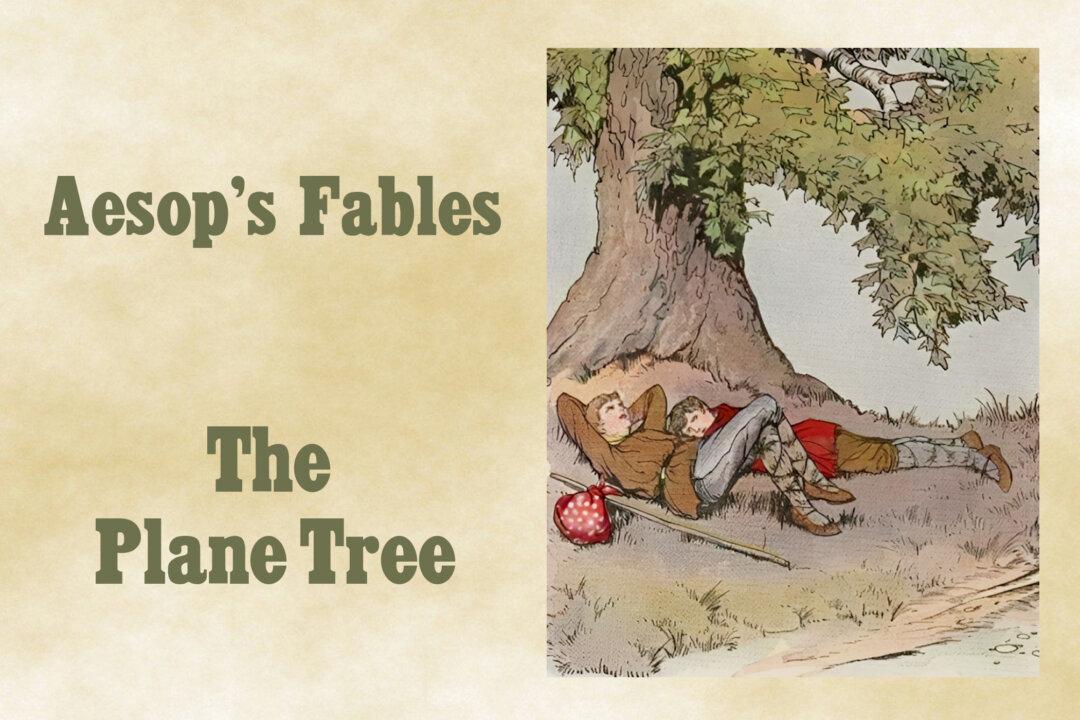Two Travelers, walking in the noonday sun, sought the shade of a widespreading tree to rest. As they lay looking up among the pleasant leaves, they saw that it was a Plane Tree.
“How useless is the Plane!” said one of them. “It bears no fruit whatever, and only serves to litter the ground with leaves.”






